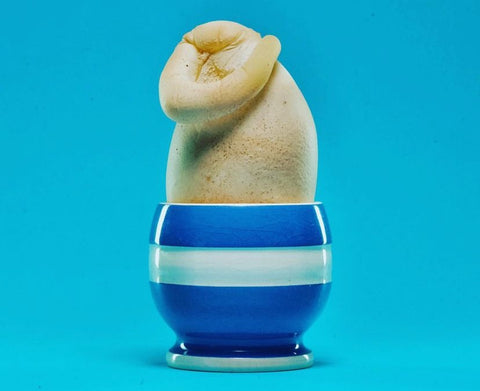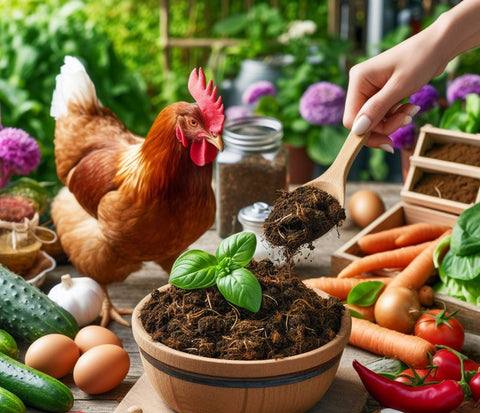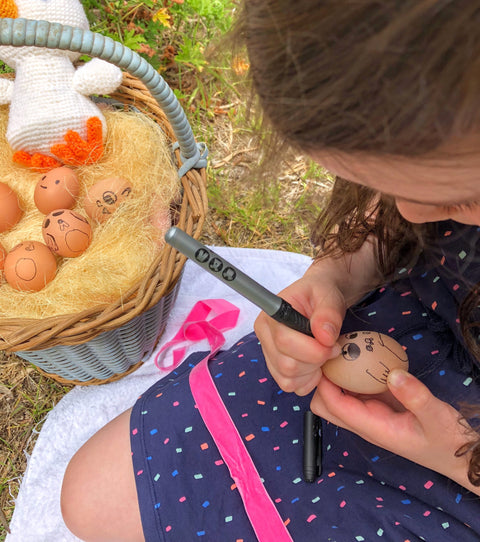Quick and easy ways to treat intestinal worms
It’s a fact of life that chickens get intestinal worms and it’s not necessarily a reflection of poor care by their owners. It’s actually important that we encourage their natural foraging behaviour in the backyard but it does make them more susceptible to parasites.
How do chickens get worms in the first place?
Reassuringly, there’s only one type of intestinal worm that backyard chicken owners are most likely to encounter and that’s roundworm (Ascaridia galli).
You see, chickens can easily ingest roundworm eggs via dirt or soiled litter, as well as through eating earthworms, snails or other garden invertebrates. Once roundworm eggs hatch in the chicken’s upper intestine, young larvae hunker down in the intestinal lining until maturity. At which point, they move into the bowels (where they can travel throughout the digestive system) and release eggs, thus restarting the cycle.
Signs of intestinal worms
Now, roundworms are large enough to be seen in droppings (50-76mm) however, that’s not always the first sign of a problem.
To begin with, you may notice a change in your chicken’s eggs. It could be reduced quantity, soft shells, pale coloured shells or eggs that are misshapen.
Your girls could also act a little differently, perhaps being less social and not eating as much. Their droppings might be runnier than usual too and they frequently develop dirty, messy bottoms.
Here’s how worming treatment works
Quite simply, deworming products that contain piperazine and levamisole are approved in Australia to eradicate intestinal worms in hens. They also don't require that you discard your eggs during treatment, which is typically 14-days.
You’ll find that many dewormers that contain these ingredients are water-based which means that chickens are unwilling to drink the medicine (and this makes for hard work). In addition, some have other ingredients that are not registered or approved for egg-laying birds so always check the information on the packet!
That’s why we consulted our poultry vet who developed our innovative feed-based dewormer - Worm All! Worm All is a holistic treatment and chickens are content to eat it when mixed into their regular feed over a 7-day period. Importantly, it contains Flubendazole (active ingredient), which is registered for use with egg-laying birds in Australia so that you can continue to enjoy their eggs during treatment.
In addition, unlike other dewormers that just kill the parasite, Worm All! contains a nutritional supplement. This supplement supports hens in healing damage done to their gut lining by parasitic worms and gets them back to full health as quickly as possible.
Useful tips to prevent and treat worms
- Good drainage in the coop’s run and range areas is paramount – mud and puddles are like incubators for parasitic eggs!
- Regularly scoop up droppings or provide a deep litter system to prevent further ingestion of parasitic eggs
- Quarantine new birds before introducing them to the flock
- When treating with Worm All! – remove all food sources the night before so that they only tuck into their medicated feed the next morning
- Don't let the flock out to free-range until after noon on the first treatment day and don't provide any extra food or scraps throughout the treatment period.
- Read labels carefully to ensure you provide enough medicated feed (Worm All), to ensure treatment is effective.
Believe us, eliminating internal parasites is worth it – you’ll get more consistent egg production and improved egg quality along with a happier, healthier flock.







Comments (1)
How often should I worm the girls?